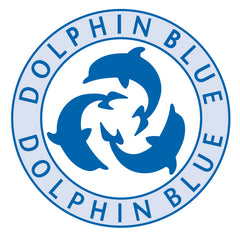
Tom Kemper has spent the last 16 years running Dolphin Blue, Inc. and DolphinBlue.com, a business built on principles of environmental and social sustainability.
In the 1970's, the valley in which Kemper was raised was discovered to have been covered with dioxin-contaminated waste-oil. The roads were being sprayed by county contractors to reduce dust in the summer months. A beautiful, spring-fed, trout stream -- where Kemper fished as a young boy --became suddenly void of life. Rare illnesses and disease began showing up among his former classmates, creating concern among the neighbors in the formerly ecologically vibrant valley. The town is Fenton, Missouri, near infamous Times Beach. This played an important role in development of Kemper's environmental awareness and activism.
Conducting the first public recycling event at the Shakespeare Festival of Dallas in 1992, he collected, sorted, and bagged three hundred fifty, 50-gallon bags of recyclable commodities in the three weeks of the festival. Kemper had little success in finding anyone to accept the materials for reprocessing. It was through this exercise he began to realize the true economics of recycling: the only way it works, is when we choose products made from materials we attempt to recycle.
Assembling a business and marketing plan for Dolphin Blue in 1993, the Company began providing post-consumer recycled products to its first customers in '94. Fiscal 2003 produced the company's highest-ever revenues, totaling almost $1 million in only recycled-content office supplies.
Not only does Kemper work to protect peoples' health and the environment, he also has worked to create a fair and sustainable model in global trade.
Kemper says, "Under globalization, we see our natural world deteriorating and societies losing their culture. Human dignity, natural resources, peoples' health, education, diversity and individuals' economic needs take a back seat to profitability. Consumers expect low-cost, throw-away goods, while global corporations and CEOs and corporate managers increase their wealth exponentially. We often observe formerly good-paying jobs being exported to Bangladesh, China, India, Mexico, Malaysia, and now, Africa. For how long can we continue on this path? To be socially, environmentally, and economically sustainable, we must meet the needs of ALL constituents."
Kemper believes we must begin in our own communities, valuing those amenities, "human and natural capital" -- like clean air, clean water, healthy and nutritious foods, our children's health, the health and strength of our community's economy, safety of our neighborhoods - things we seem to no longer value, and those things we seem to have forgotten the past twenty years that our parents and grandparents seemed to inherently know. We've all been so indoctrinated to consumerism, we've lost touch with what really matters in life.
Small, locally owned business is one way to return accountability and sustainability to local communities. Small business is a realistic way to once again create strong, vibrant economies in our communities. Kemper asks, "Can we create the world we want that works for all of us? What does that sustainable world look like? Only we, the inhabitants in control of consumption, can create a sustainable world."
To address these questions, Kemper and his co-chairs -- Margie Haley and Gary Olp -- embarked on a mission in 1998 to answer these questions each year through their leadership of Sustainable Dallas' annual Conference on Sustainability.
As the President and founder of Dolphin Blue, Kemper strives to create the sustainable world and local community he envisions.
